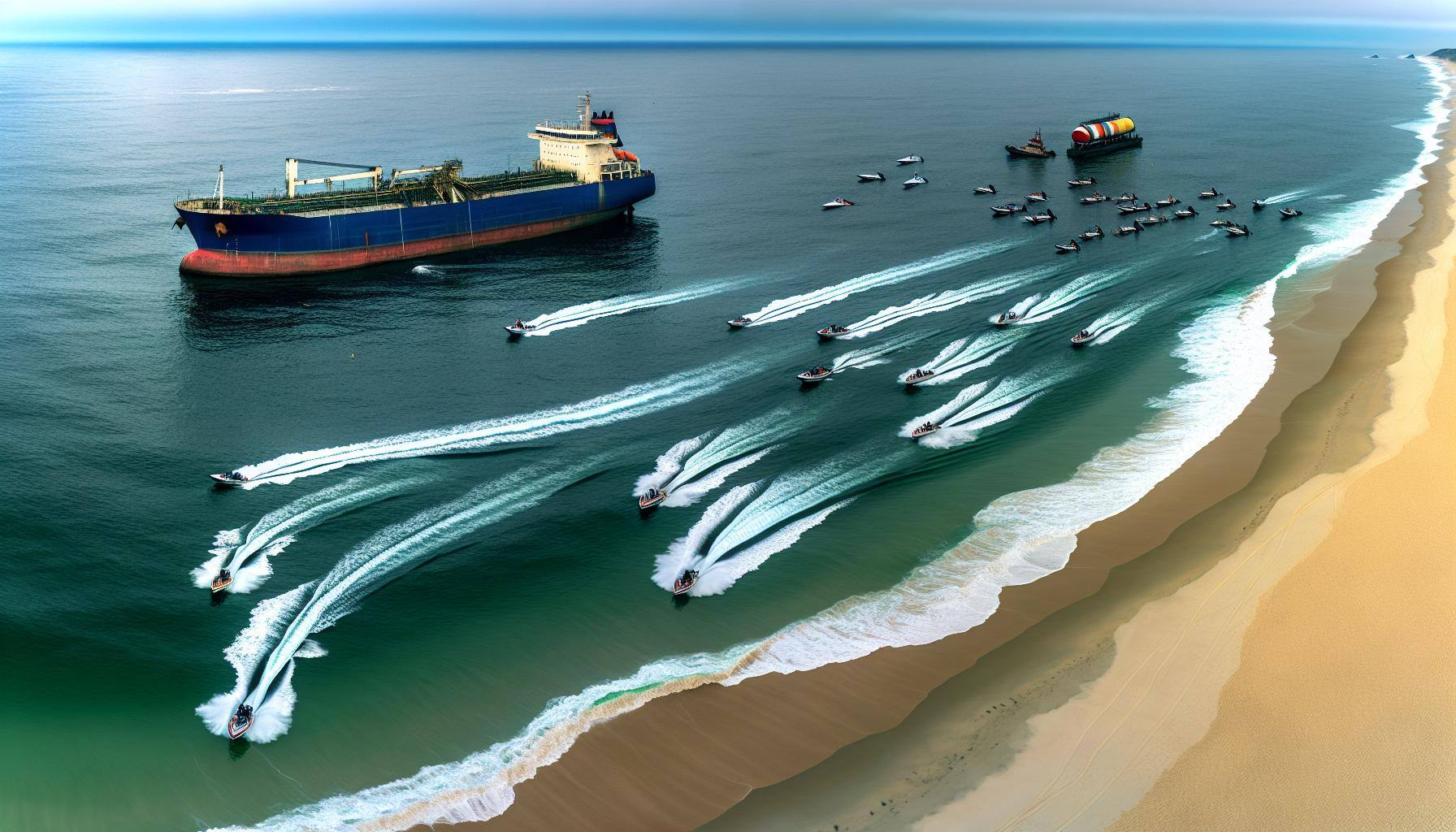The Atlantic Ocean, historically pivotal for transoceanic trade, remains crucial today, particularly in connecting Africa, Europe, and the Americas.
However, while much attention is focused on piracy and political instability in the Gulf of Guinea and the Indian Ocean, the South Atlantic's strategic importance and rising criminal activities have been largely overlooked. Historically, the North Atlantic garnered more focus due to piracy and slave trading, leaving the South Atlantic's criminal economies under-explored. This neglect persists as international attention remains fixed on the North Atlantic and Western Indian Ocean due to recent piracy and Houthi attacks.
Natural Resources and Economic Significance
Southern Africa's Atlantic coast is rich in biodiversity and resources such as fish, oil, and diamonds, supporting coastal communities and global trade. Ports along this coastline create vital maritime trade corridors for inland neighbors. As African nations and foreign entities aim to harness the ocean economy's potential, they encounter criminals exploiting the same geostrategic space. These actors benefit from enhanced maritime trade and technological advancements that enable larger, faster, and longer-traveling vessels.
Key Maritime Threats
-
Fisheries Crime: Illegal, unreported, and unregulated (IUU) fishing, alongside high-level corruption, plagues the South Atlantic. Namibia, for instance, suffers substantial losses from illegal fishing, exacerbated by officials awarding fishing quotas to foreign companies. Angola also faces significant IUU fishing, prompting a U.S. flagging for potential illegal activities.
-
Oil and Fuel Smuggling: Angola, a major African oil producer, experiences vessel attacks and cross-border fuel smuggling due to its rich offshore oil deposits. Namibia, similarly endowed with offshore oil and diamonds, attracts both multinational companies and transnational criminal networks.
-
Drug Trafficking: Southern Africa is increasingly pivotal in the South American cocaine trade. Although primarily transit states, local cocaine consumption is rising, with South Africa being a notable transit hub for cocaine shipments. The region's vulnerability to drug traffickers is compounded by historical ties between Brazilian drug networks and Lusophone Angola.
Regional Security Challenges
South Atlantic African states struggle with limited capacity to monitor vast coastal waters and tackle transnational criminal networks that traverse maritime borders. Unlike the Indian Ocean Rim Association, no comprehensive Pan-Atlantic initiative engages all littoral states on security matters. Existing regional agreements, such as the Djibouti and Yaoundé Codes of Conduct, are often limited in scope and do not encompass all relevant states. For example, Namibia is not a signatory to either code.
Cooperative Efforts and Strategic Gaps
Cooperative regional frameworks like the Benguela Current Convention and the Zone of Peace and Cooperation of the South Atlantic (ZOPACAS) exist, but their focus is primarily on conservation and economic development rather than security. The Southern African Development Community’s (SADC) Integrated Maritime Security Strategy offers a potential framework for cooperation, yet it requires renewed engagement for effective implementation. Recently, the Atlantic African States Process was established, but its ad hoc nature may hinder tangible cooperation at sea.
Implications and Recommendations
With increased vessel traffic rerouted around the Cape of Good Hope due to security risks in the Gulf of Aden and the Red Sea, and potential strain from Russian oil sanctions and climate change impacts, the South Atlantic faces heightened risks. Angola and Namibia, with their relatively better port capacities, may bear the brunt of increased maritime activity. This could exacerbate existing security voids and provide opportunities for criminal networks.
Conclusion
To address these emerging threats, a coordinated effort to map and target criminal activities in Africa’s South Atlantic is imperative. Enhanced collaboration, possibly linking existing structures or forming new bilateral or multilateral frameworks, is crucial to safeguard this vital region. Failure to act collectively may result in significant security and economic consequences.





